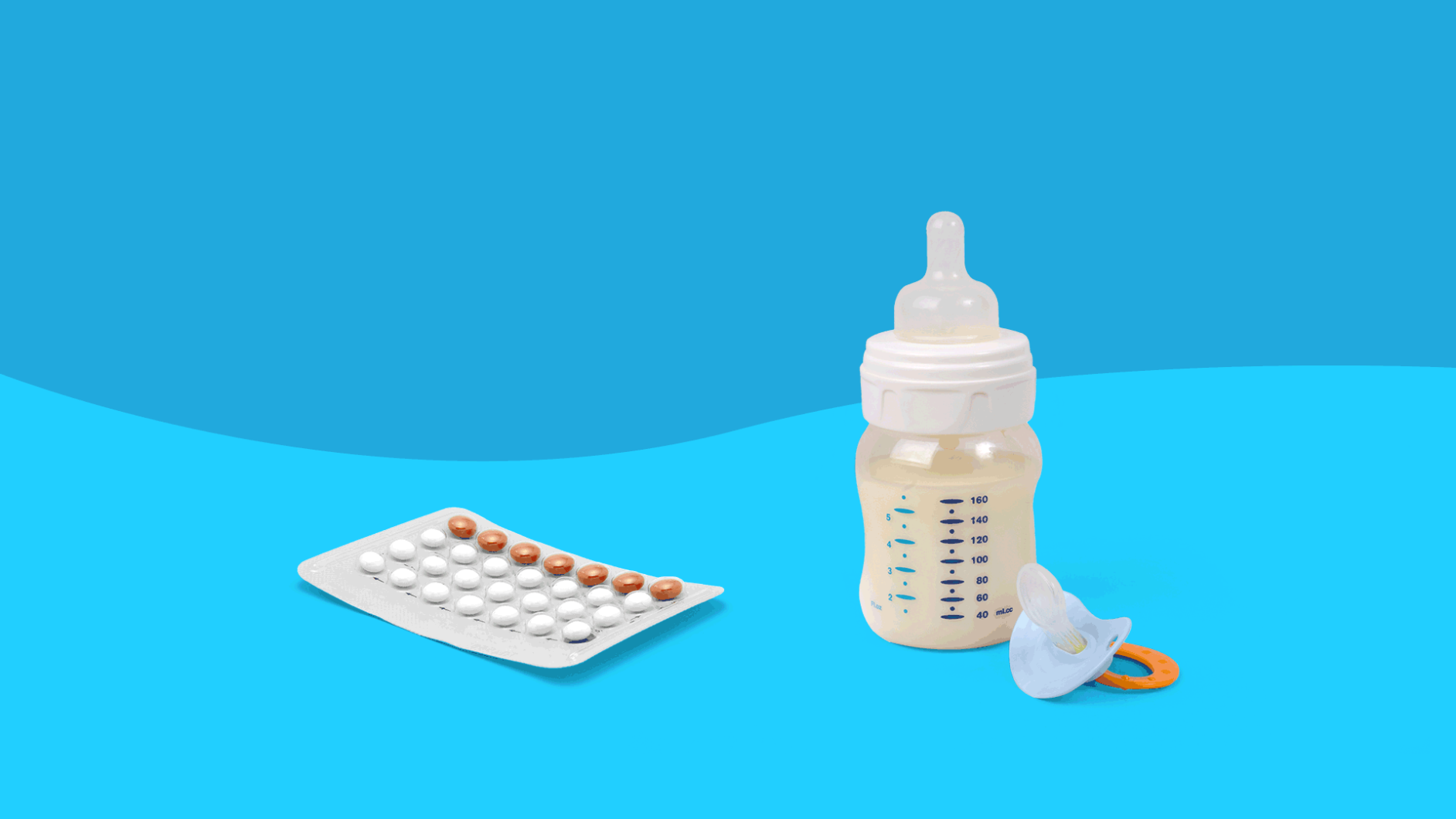This is part of a series on breastfeeding in support of National Breastfeeding Month (August). Find the full coverage here.
After a woman gives birth, having another baby might be the last thing on her mind. Some nursing moms believe they can successfully prevent pregnancy simply by continuing to nurse their babies. But contrary to popular belief, it is possible to get pregnant while breastfeeding—which is why you should think about how you can prevent pregnancy before resuming sexual activity.
Some women rely on barrier methods of contraception, such as condoms or diaphragms. Others might prefer a copper Intrauterine Device (IUD). But one of the most popular choices for pregnancy prevention is still hormonal birth control.
Taking hormonal birth control while breastfeeding
Most forms of hormonal contraceptives are safe for nursing mothers to take, according to La Leche League. A small amount of the synthetic hormone will enter your breast milk and be passed on to your baby, but it will not cause the baby any harm. However, there is some evidence that very young infants, less than 6 weeks old, may not be able to metabolize the hormones, so doctors typically recommend not starting hormonal birth control for at least six weeks after birth.
Hormonal birth control can come in several forms:
- Combined oral contraceptives: This is what most people call “the pill.” It is a combination of the hormones estrogen and progestin, and women must take it every day at the same time.
- Progestin-only pill: This is also known as the mini-pill, the nursing pill, or POP. Unlike the combined pill, POP only has one hormone, progestin. Some women use this pill while breastfeeding to avoid losing milk supply, as estrogen is known to reduce supply in some women. Progestin-only pills are less likely to diminish milk supply, but some women are sensitive to these products, also.
- Implant: The implant is a thin rod that your doctor inserts under your skin on the upper arm. The rod contains progestin that is slowly released into your body over the course of three years.
- Injection or shot: This is an injection of the hormone progestin in your buttocks or arm every three months. It is administered by a doctor. Generally, women should trial the progestin-only pill first to determine if this hormone has any impact on their milk supply.
- Patch: Women can wear a birth control patch on their lower abdomen, buttocks, or upper body. (Do not put it on your breasts.) It slowly releases the hormones estrogen and progestin into your bloodstream. You put on a new patch once a week for three weeks, then go without a patch for the fourth week. That’s when you’ll get your period.
- Vaginal contraceptive ring: This is a ring that you place inside your vagina, and it releases the hormones progestin and estrogen into your bloodstream. You wear the ring for three weeks, then take it out for the week of your period.
Does hormonal birth control affect milk supply?
Some women who breastfeed tolerate hormonal contraceptives without an issue. But sometimes, the estrogen in these products can cause your milk supply to dry up.
“Certain people are more sensitive to hormones than other people,” says Rachael Martin, a registered nurse in Bowie, Maryland. “For some, even the mini-pill can decrease milk supply while others may see no impact to their supply even with a Depo shot.”
The risk of reduced milk supply is more significant for women who are nursing a baby older than 6 months or whose babies are not exclusively breastfeeding. If you are already dealing with low milk supply, hormonal birth control might aggravate that problem.
So what does this mean for you? If you are a nursing mother and you want to try hormonal birth control, talk to your provider. Most doctors will recommend trying the mini-pill, as it is the least likely to affect your milk supply.
RELATED: Can you take a prescription to increase milk supply?
“Mothers should discuss the best birth control options with their provider,” says Kelly Kendall, a registered nurse and lactation consultant in Crofton, Maryland. “But generally progesterone-only options have the lowest chance of impacting milk supply.”
Don’t be surprised if your body reacts differently from others. Every woman is different, and your body will react to hormones in its own way. If your birth control is causing any side effects that are bothersome, including low milk supply, ask your provider about your options. As you can see from the list above, there are many types of contraception available, and one of them could be right for you.











